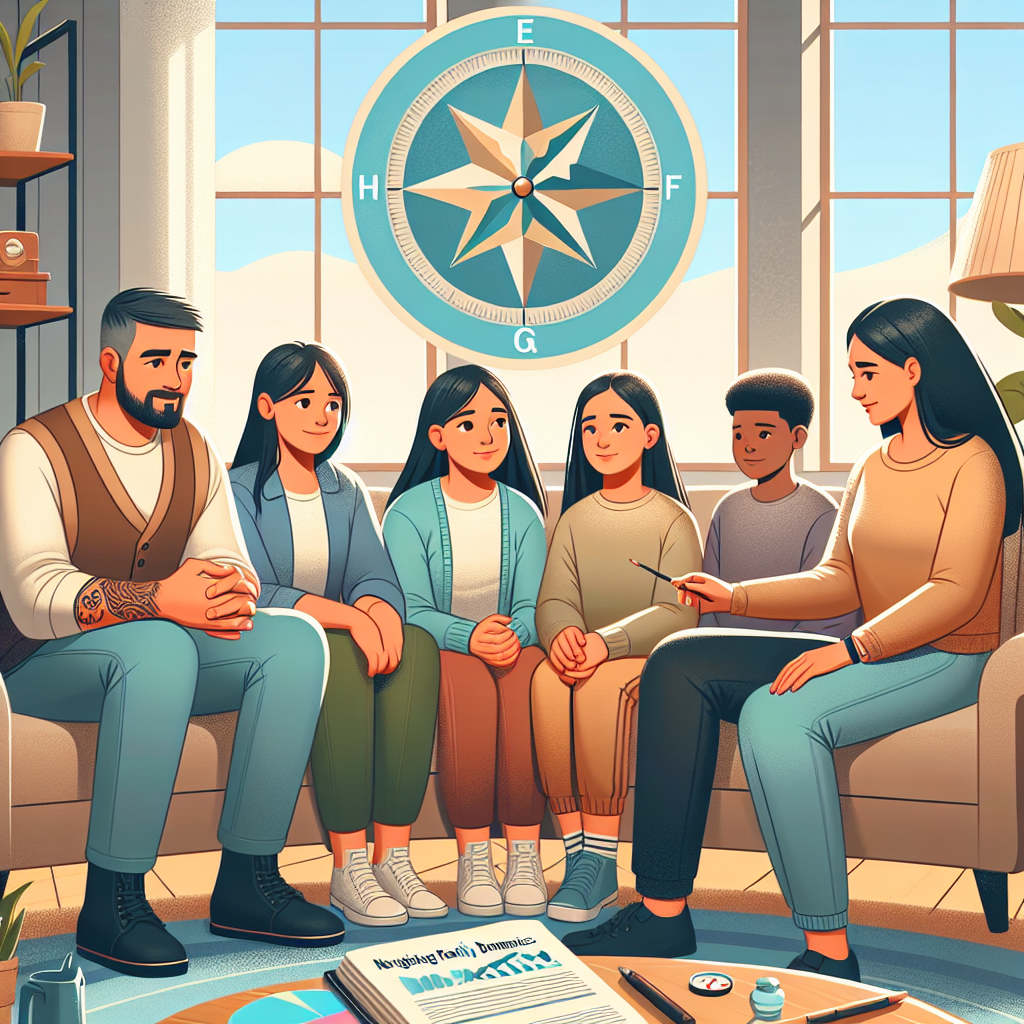Family dynamics can be complex and challenging to navigate. Every family has its own unique set of dynamics, communication styles, and relationships that can make navigating family issues difficult. Family therapy is a valuable tool that can help individuals and families work through their issues and improve their relationships. In this article, we will explore the importance of family therapy, tips for successful family therapy sessions, and common FAQs about family therapy.
Family therapy, also known as family counseling or couples therapy, is a form of therapy that focuses on improving communication and resolving conflicts within a family unit. Family therapy can be beneficial for families dealing with a variety of issues, including divorce, addiction, mental health issues, and other challenges. The goal of family therapy is to help family members understand each other better, communicate more effectively, and improve their relationships.
One of the key benefits of family therapy is that it allows all family members to have a voice and be heard. In family therapy sessions, each family member has the opportunity to express their thoughts and feelings in a safe and supportive environment. This can help family members feel validated and understood, leading to increased trust and empathy within the family.
Successful family therapy sessions require open communication, honesty, and a willingness to listen and understand each other. Here are some tips for navigating family dynamics and maximizing the effectiveness of family therapy sessions:
1. Be open and honest: In order for family therapy to be successful, family members must be willing to be open and honest with each other. This means sharing thoughts, feelings, and concerns in a respectful and non-judgmental way.
2. Listen actively: Listening is a crucial component of effective communication. Family members should practice active listening, which involves focusing on what the speaker is saying, asking clarifying questions, and reflecting on what was said.
3. Practice empathy: Empathy is the ability to understand and share the feelings of another person. Family members should strive to practice empathy towards each other, acknowledging and validating each other’s emotions.
4. Set boundaries: Boundaries are essential for healthy relationships. Family members should set clear boundaries and respect each other’s boundaries in order to maintain a positive and respectful dynamic.
5. Work together towards solutions: Family therapy is a collaborative process. Family members should work together towards finding solutions to their issues, rather than placing blame or trying to “win” arguments.
6. Be patient and persistent: Change takes time, and family therapy is a process. Family members should be patient with themselves and each other, and be persistent in working towards improving their relationships.
7. Follow through on homework assignments: Family therapists often assign homework assignments to help family members practice new communication skills and behaviors outside of therapy sessions. It is important for family members to follow through on these assignments in order to maximize the benefits of therapy.
Now, let’s address some common FAQs about family therapy:
Q: How do I know if my family needs therapy?
A: If your family is experiencing conflict, communication breakdowns, or any other challenges that are impacting your relationships, it may be beneficial to seek family therapy.
Q: How long does family therapy last?
A: The length of family therapy sessions can vary depending on the specific issues being addressed and the progress being made. Some families may benefit from just a few sessions, while others may require more extensive therapy.
Q: Will my family therapist take sides?
A: Family therapists are trained to remain neutral and impartial. They will work to understand each family member’s perspective and help facilitate open communication and understanding.
Q: Can children participate in family therapy?
A: Yes, children can participate in family therapy sessions, although the therapist may recommend individual therapy for children depending on their age and the issues being addressed.
Q: How much does family therapy cost?
A: The cost of family therapy can vary depending on the therapist, location, and insurance coverage. Many therapists offer sliding scale fees or accept insurance to make therapy more accessible.
Overall, family therapy can be a valuable tool for improving communication, resolving conflicts, and strengthening relationships within a family unit. By practicing open communication, empathy, and collaboration, families can work through their issues and build healthier relationships. If your family is struggling, consider reaching out to a qualified family therapist for support.




Leave A Comment